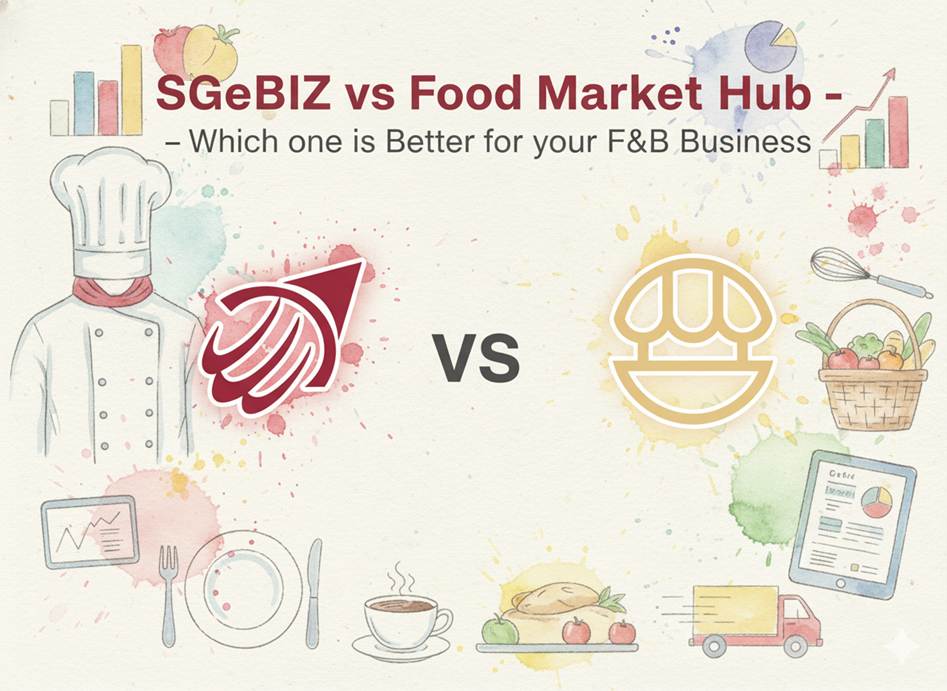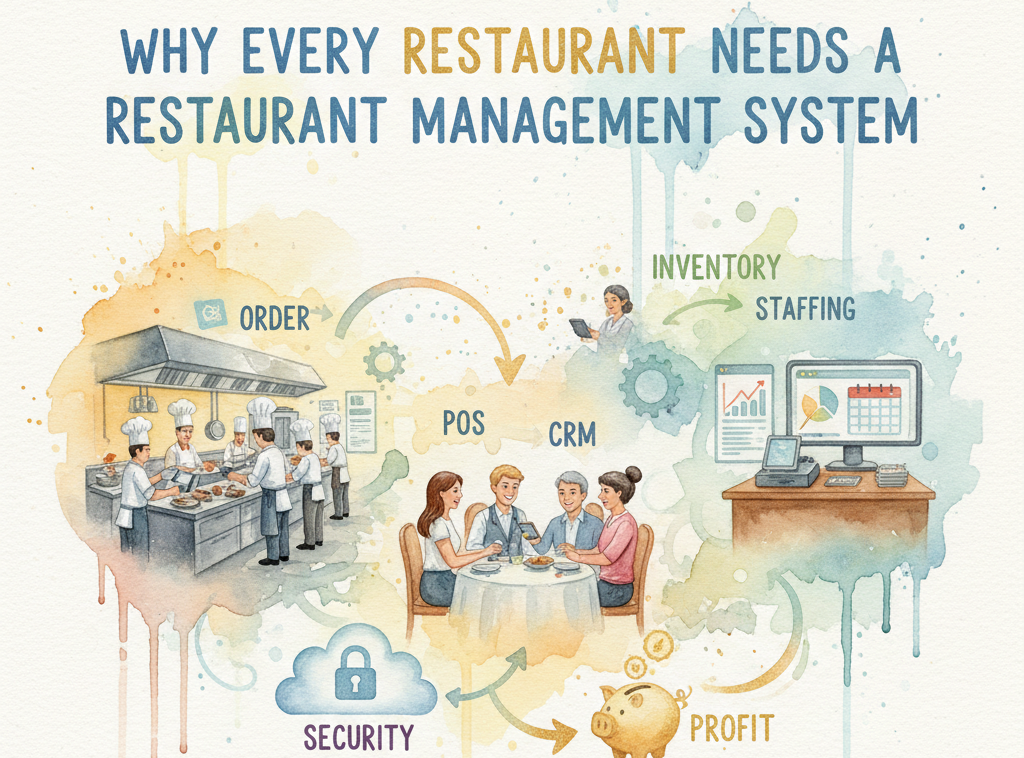Digitalise Your F&B Business to Generate a Higher Profit

Amongst restaurateurs, tracking purchases, managing inventory, and monitoring kitchen’s performance in real time are a common challenge. However, most of them are not yet aware about how digitalisation is the key solution for these issues.
Using digitalisation, restaurateurs can experience up to 50% less administrative work, a 20% increase in profit margin and a 20% reduction in food costs. This is in line with Toast’s research, which showed that over 95% of restaurateurs agreed that automating their businesses had resulted in increased efficiency.
In this pandemic era, more and more restaurant operators are turning to technology to overcome labor shortage and strict hygienic regulations. This has become the new norm in the F&B industry. By optimising technology tools such as procurement platforms, QR codes, POS systems and mobile applications, day-to-day operations have become much more streamlined and cost-effective.
Similarly, tech innovations have been found to generate a faster production of food, while also ensuring products to be more affordable and in higher quality. For restaurateurs that are still on the fence about digitalisation, consider the three reasons below:
1. The landscape of F&B industry is changing

Nowadays technology plays a vital role in shaping the F&B industry. This leads to the servicescape being ever-evolving due to rapid advancement of technology. What’s more, the ability of a F&B enterprises to implement technology has been found to have a direct link with their competitiveness.
Technology also becomes a huge selling point for new restaurant concepts to be relevant to the younger generations. As millennials and Gen Z continue to dominate the consumer landscape, one way to achieve brand loyalty is by making your restaurant more tech-friendly, which essentially means to digitalise both front and back-end operations.
2. Customer expectations are changing

Even prior to the COVID-19 pandemic, customers’ have been prioritising hygienic food and restaurant environments. The pandemic only further accentuated this need, as now more and more customers highly value food safety. A recent questionnaire conducted even showed that diners are willing to pay twice as much for restaurants that can guarantee safety and cleanliness.
Such high demand for strict quality control requires restaurants to rely more on technology. Following the new norm, less human contact is deemed safer. To ensure this, online ordering (using QR codes), self-order machines and takeaways have become more favourable options - all these tools require digitalisation.
3. Better management

By digitalising, restaurateurs will be able to generate higher revenue as customer insights keep growing. Using a variety of softwares and applications, a permanent record of customers can be obtained, which then can be optimised for restaurateurs to tailor their services according to their customer needs.
In this era where personalisation matters more than ever, digitalising restaurants can lead to uncovering new revenue opportunities, while at the same time maximising the team’s productivity. For instance, restaurateurs can even utilise live Web monitoring to generate automatic reports, review key performance and service processes in real time.
Be prepared for the future
There’s no better way than now for restaurant operators to start digitalising their business. In streamlining all back-end processes needed for managing a restaurant, utilise Food Market Hub.
The software allows seamless integration with POS systems, keeps permanent records of all orders to suppliers, and connects restaurateurs with just the right suppliers. This AI-powered platform is designed to modernise F&B businesses, no matter how big or small.
For more information on the services that Food










